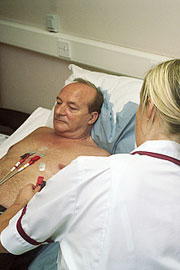Neurological Genetic Conditions
When you hear about neurological genetic conditions, several things might come to mind, such as malformations and malfunctioning of the body. Perhaps you remain unaware of how these conditions may affect the nervous system. Neurological genetic conditions simply refer to disorders that affect a good number of children and adults all over the world. These conditions can be associated with learning difficulties that children develop in their early school years. The truth is most of these cases are identified during birth or early childhood. In contrast, other types of neurological disorders may appear until the final years of a person’s life.
Neurological Genetic Conditions: Defined
As far as neurological genetic conditions are concerned, these disorders refer to the diseases that involve the spinal cord, the nerves, and the brain. Even though there are neurological conditions that stem from an injury, there are other conditions that originate due to the genetic composition of a person. The following are some of the most common neurological genetic conditions that tend to appear in children and adolescents:
- Tourette syndrome – related to involuntary and rapid movements
- Hydrocephalus –one in every 500 newborns are affected
- Cerebral palsy – paralysis in parts of the brain
- Mental retardation–cognitive functioning is substantially impaired
- Seizure disorders – may be related to epilepsy
- Brain malformations–takes place when the baby is being formed
More Things to Know About Genetic Disorders
Neurological genetic conditions are certain types of diseases causes by different forms of genes, which are usually called gene variations; it is also caused by the alteration known as gene mutation. These disorders and diseases can be suffered by any member of the family, and may later be inherited spontaneously by future generations. The following are some of the most common neurological genetic conditions, in which people of all ages can be affected. In addition, most of these conditions have been well identified and well documented:
- Turner syndrome – cause unknown, present in about 1 of 2,500 females
- Down syndrome–delays physical and mental development
- Velocardiofacial Syndrome (VCFS) – defective development of the heart
- Williams Syndrome – affects mental and physical development
- Fragile X Syndrome – cause of autism
- Prader-WilliSyndromes(PWS)– affects about 1 of 10,000 newborns, and leads to obesity, mental retardation and strabismus
A Bright Hope
A good number of health experts and neurologists have the ability to pinpoint the symptoms suffered and encountered by the majority of individuals, who are suffering from different kinds of neurological genetic conditions. Certainly, different types of approaches and training procedures have been developed, in order to assist these patients to overcome their conditions. Even though it might be difficult to find a cure or a proper treatment for every single neurological genetic condition, noticeable progress has been made over the years. In some cases, medical centers will open accounts where the public in general can make a donation. These donations will be put at good use in the medical research for proper treatment. A hopeful battle against this type of disorders will yield a victorious fight in the end.

